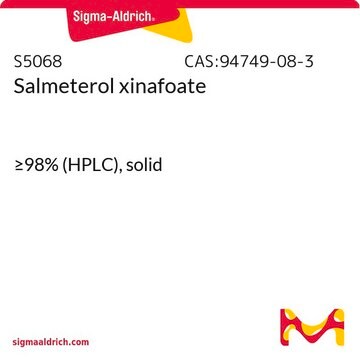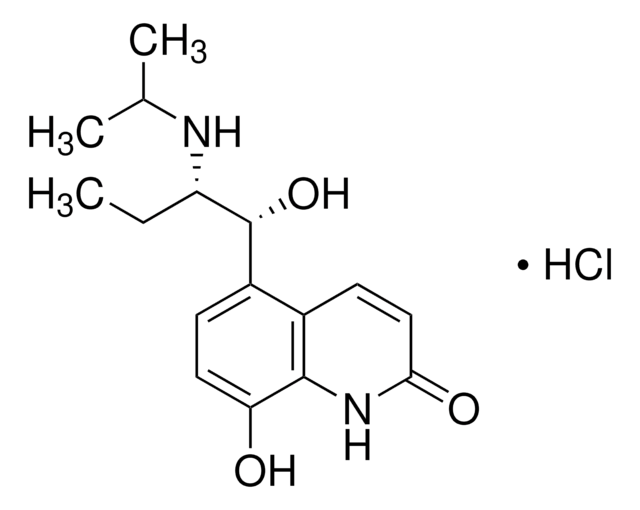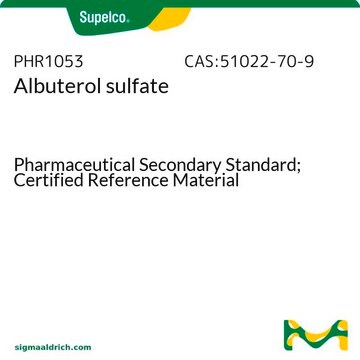S8260
Salbutamol
≥96% (GC), powder, β2 adrenoceptor agonist
Synonym(s):
α-[(tert-Butylamino)methyl]-4-hydroxy-m-xylene-α,α′-diol, Albuterol
About This Item
Recommended Products
product name
Salbutamol,
solubility
methanol: complete 50 mg/ml, clear, colorless to yellow
originator
GlaxoSmithKline
SMILES string
CC(C)(C)NCC(O)c1ccc(O)c(CO)c1
InChI
1S/C13H21NO3/c1-13(2,3)14-7-12(17)9-4-5-11(16)10(6-9)8-15/h4-6,12,14-17H,7-8H2,1-3H3
InChI key
NDAUXUAQIAJITI-UHFFFAOYSA-N
Gene Information
human ... ADRB2(154)
Looking for similar products? Visit Product Comparison Guide
Application
Biochem/physiol Actions
Features and Benefits
Signal Word
Warning
Hazard Statements
Precautionary Statements
Hazard Classifications
Acute Tox. 4 Oral - Aquatic Chronic 3 - Eye Irrit. 2 - Skin Sens. 1B
Storage Class Code
11 - Combustible Solids
WGK
WGK 2
Personal Protective Equipment
Certificates of Analysis (COA)
Search for Certificates of Analysis (COA) by entering the products Lot/Batch Number. Lot and Batch Numbers can be found on a product’s label following the words ‘Lot’ or ‘Batch’.
Already Own This Product?
Find documentation for the products that you have recently purchased in the Document Library.
Customers Also Viewed
Our team of scientists has experience in all areas of research including Life Science, Material Science, Chemical Synthesis, Chromatography, Analytical and many others.
Contact Technical Service











